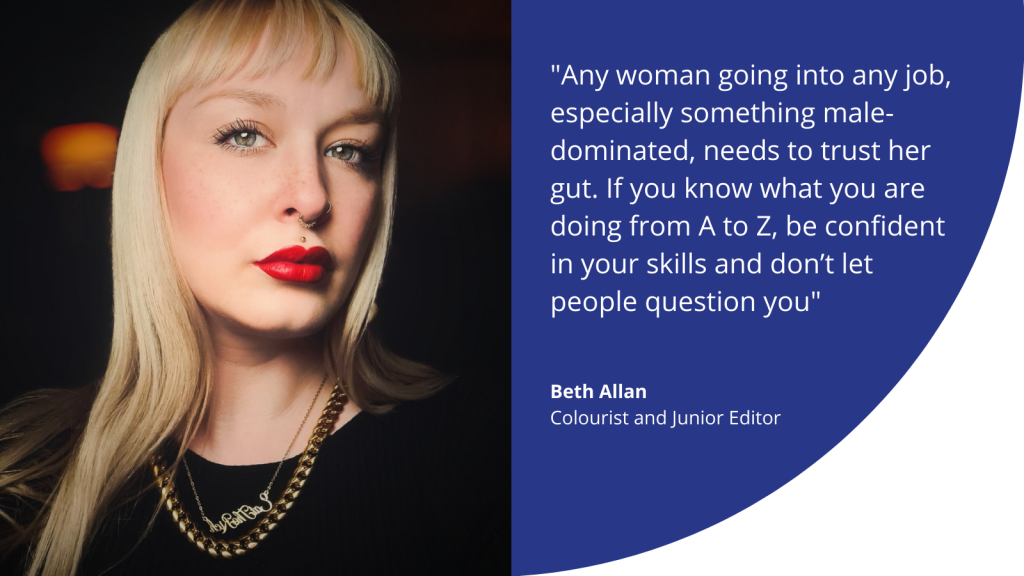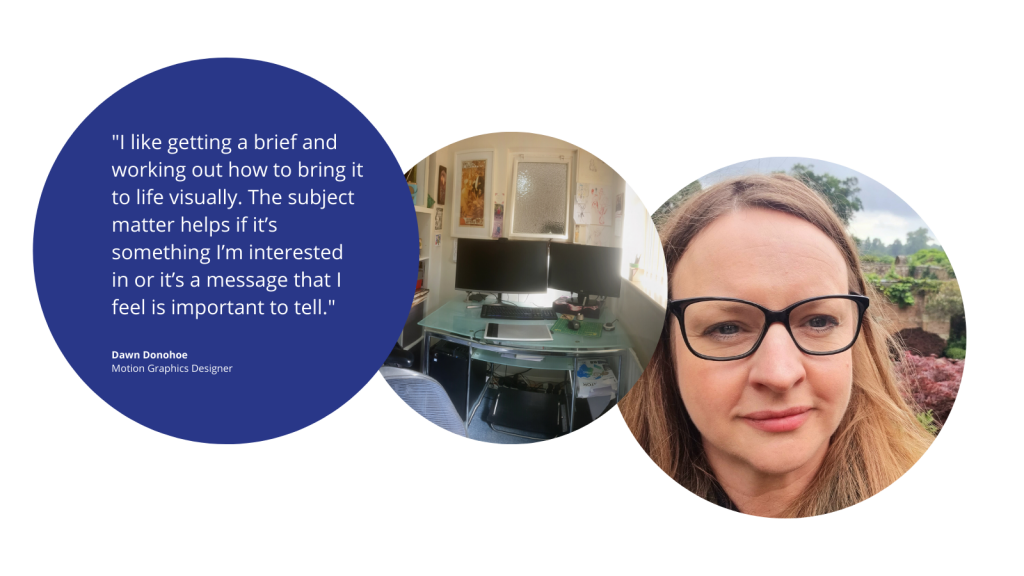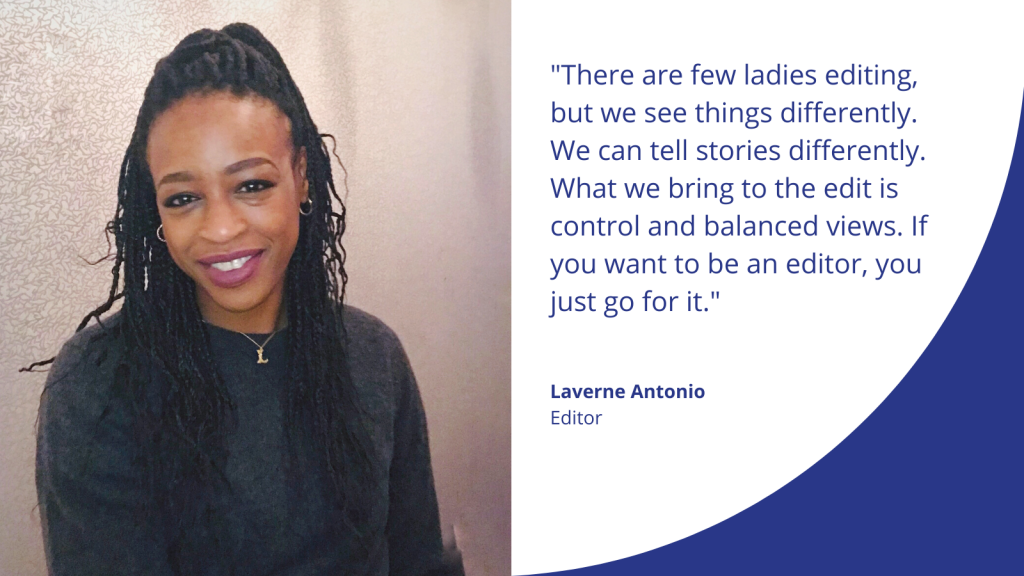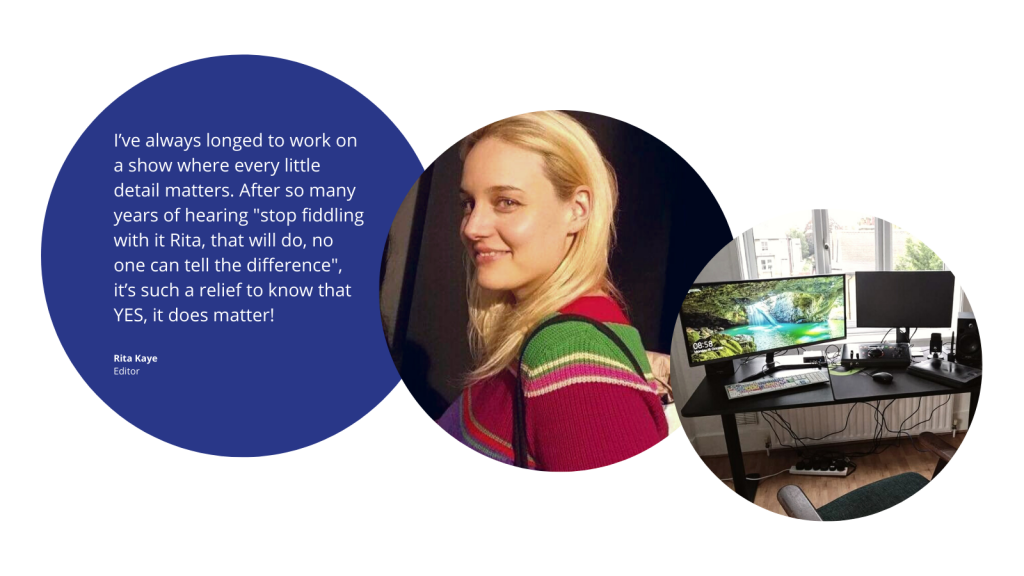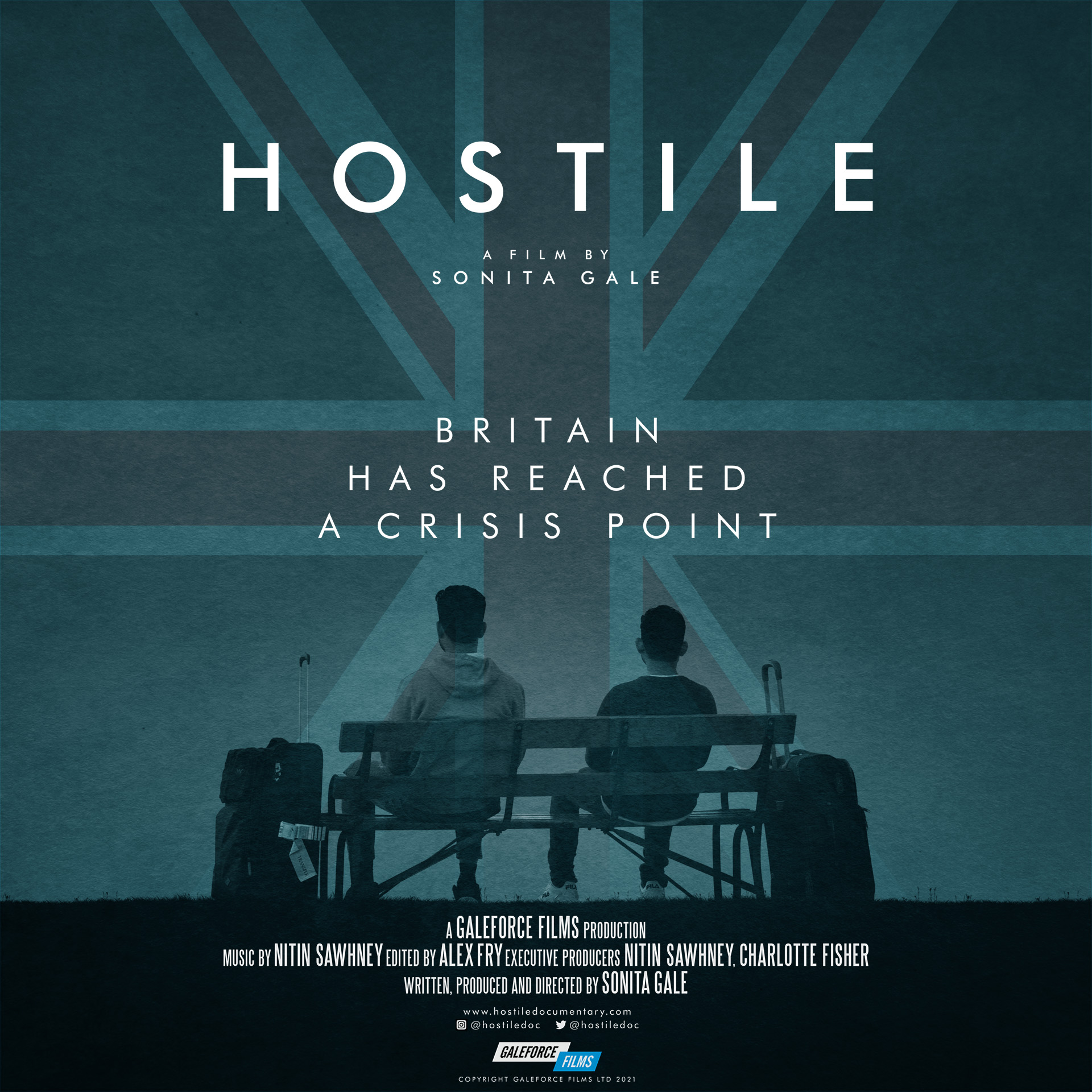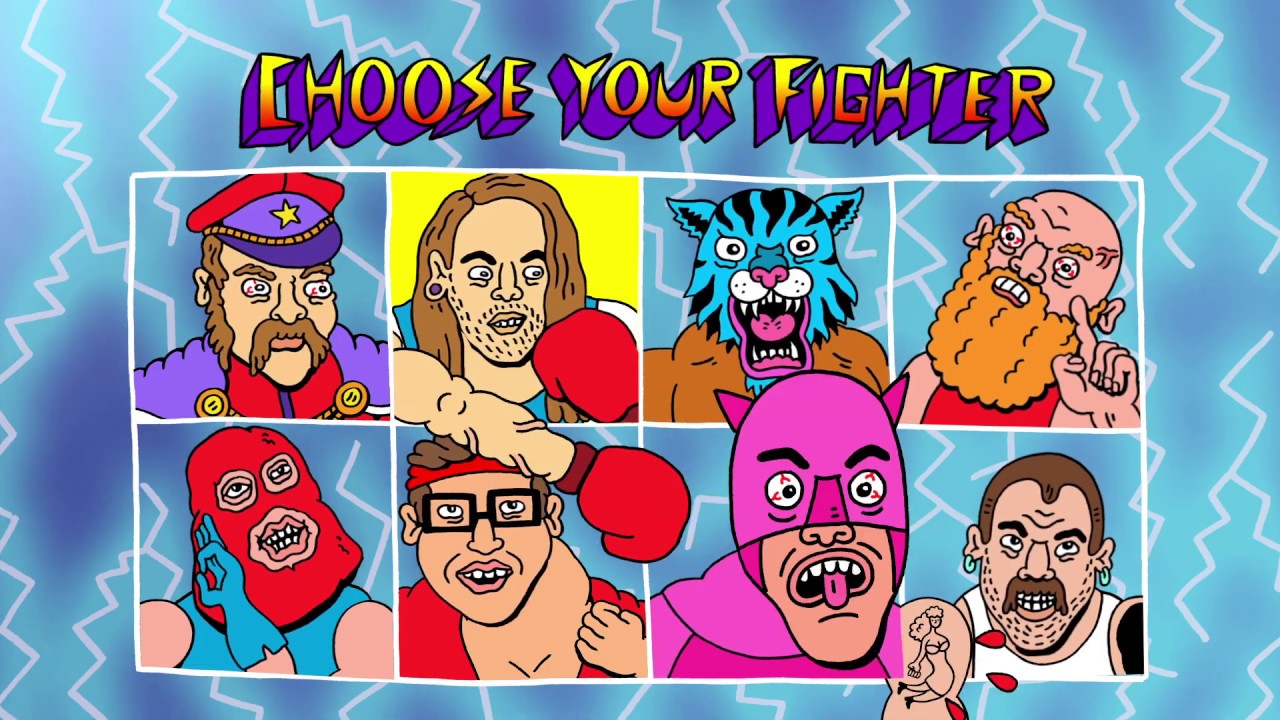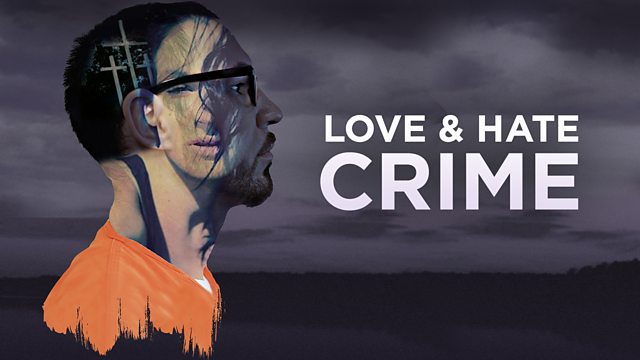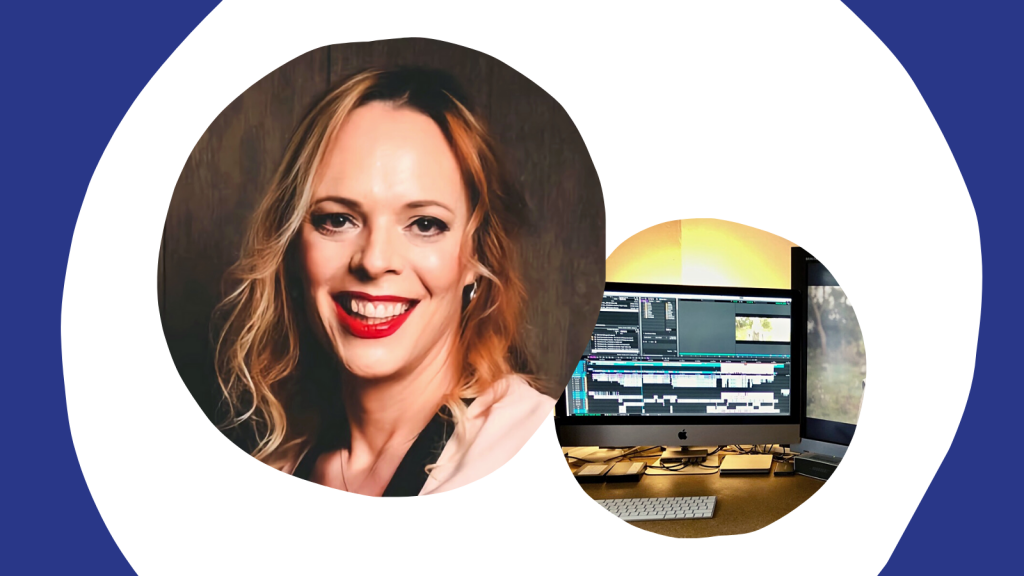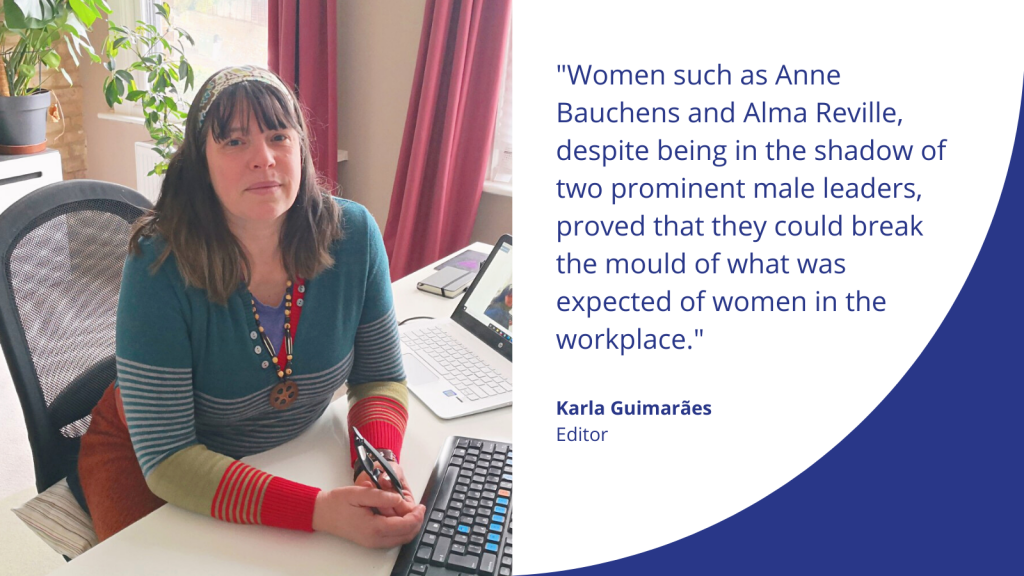Beatrix Grimbly regularly edits promos for global brands such as HSBC, Shell and EY and has cut news packages for CNN and Al Jazeera. In addition, Beatrix has several documentary credits and recently completed her first feature film edit, ‘Fortune Cookies’.
Did you always want to pursue a career in post-production?
I always wanted to make movies. I told my brother when we grew up: “I want to be a film editor.” He thought about it and said, “Oh, I suppose they do need someone to put all the little bits together.”
My best friend’s Mum was a lecturer in Women’s studies at the local polytechnic and was doing interviews with people about domestic abuse. This is when I was about 10. She had borrowed a VHS video camera to record these interviews, and my friend and I were mucking around with it. I realised that if we could playback what we had shot into another tape machine, we can stop, start, and then we can edit stuff together. That was all I knew about editing. Because it was mechanical, you would press record and it would take a second and you had to learn the timing to get the cut right. If you miss it by half a second, go back and cut again.
We started making these ridiculous films that kids make, like parodies of Top of the Pops and James Bond and things like that. In the middle of this James Bond one, we had to do a transition from London to somewhere tropical. The kind of place James Bond would go. Of course, we had no set, scenery, or anything. I realised that if we steal a shot of an airplane touching down on the tarmac, which we put in between these two scenes, then you will understand he’s been on a plane. That was the first time I used editing as a solution for anything. If you can do that, you can do all sorts of ridiculous cheating to tell a story, but the audience will understand it and it means you don’t have to go fly somewhere. That was how I started editing.
Where did you train as an editor?
I was already editing but I didn’t know what I was doing, I was just messing around with consumer electronics and computers. I went to art college and they had an edit suite tucked away in what they called the time-based media department. It was a fine art media college; you had painting, sculpture, printmaking, and photography. They had another thing called time-based media and that was basically where they put everything else that doesn’t fit into one of the main groups. So that’s performance, audio and video. I taught myself to edit on their three-machine SVHS suite. In the second year, I didn’t do much of my own work, but I did edit a lot of other people’s films. That was where I first got the idea that you can do this for other people. Other people didn’t necessarily want to do it themselves, but for me, it was always the most interesting bit. I was never really interested in filming, but instead putting the stuff together. That to me is what is most exciting.
A couple of years out of college I was volunteering for a charity that had a big video library. I didn’t start as an editor, I was more of a general communications assistant. The communications manager realised that I had a thing for video and then I started to use Final Cut. It was bit by bit, self-taught. Eventually, I got a freelance job at another place called Cantos, which was actually a client of Blueberry (I didn’t know Blueberry existed then). After I’d done that job I started thinking maybe I could do this for a living. Then I got in touch with Irantzu. That was maybe 15 years ago.
I’m trans, and I transitioned while I was freelancing through Blueberry. Usually, people transition, and they come out to just one employer or a group of colleagues, but I was freelancing all over the place.
So you’ve been with Blueberry for a while now!
Blueberry were good to me in many ways. I’m trans, and I transitioned while I was freelancing through Blueberry. Usually, people transition and come out to just one employer or a group of colleagues, but I was freelancing all over the place.
How do you deal with that? Do you try to come out individually to each client? Blueberry was doing routine sit-downs at the time and they’d invite you in for a coffee and chat. I ambushed them with this and told them I’m transitioning. They didn’t skip a beat. They said they’d talk to clients and were happy to do that. That was a huge thing for me, both in terms of keeping my professional life alive and also the confidence to do it. They reacted so warmly and supportively and that gave me confidence. Sometimes walking into a swanky place in Soho with corporate clients sitting there, you have to take a couple of deep breaths. Finding that centre is a challenge, particularly if you think your identity or the way you look is going to raise eyebrows. Blueberry very much helped and supported me.
Finding that centre is a challenge, particularly if you think your identity or the way you look is going to raise eyebrows.
Has that been a challenge in the industry?
Not nearly as much as I thought it would be. The worst thing for me was the anticipation. I was anxious that people might give me a hard time. When you are freelance nobody has to give you a reason as to why they didn’t hire you, or why they didn’t ask you back. There may have been one or two people that I didn’t hear much from again, but maybe they moved on for different reasons. You can’t tie yourself up into knots thinking about that. It was fine in general and soon after I transitioned I was getting a lot of work in a lot of different places. It was almost like a trial by fire. It all worked out. I don’t really feel like it has been an issue.
As a freelancer, you have to learn not to take things personally because you will have to move on and leave jobs behind that you didn’t get to finish. The scariest things inside your head say you can’t do this, or you shouldn’t do this.
What’s your day-to-day schedule like when working on a project?
It depends on what you are doing. I’ve been working on a micro-budget feature and two shorts over the last two years. I’ve made a bit of a move into drama, which I haven’t had the opportunity to do before. On a drama shoot, you are cutting dailies shot the day before. I try and watch those through with breakfast and hopefully it’s only an hour or so of dailies. And hopefully, you haven’t got a director who is shooting hours and hours every day because then it becomes impossible to get through! You watch through all the dailies and make notes and then you start cutting. If there are interruptions then the day can run a lot later.
I do try to be very focused anytime I’m doing anything for a client. When I go into town I like to get there a bit early, so I can get a coffee and just have 10 minutes, so I don’t walk into the premises out of breath because I’ve been rushing to get there. If you have time to prepare, then prepare even if you don’t have footage. For me, it’s all about not feeling panicked in the edit if a problem does come up. Often with editing for corporate, it’s about having a safe pair of hands. Particularly if clients are attending an edit. Having someone in the chair who won’t lose their cool. There’s always a solution, it just might take a bit longer to find. It does change with each job, but I’d say the main thing for me is trying to be ahead of it. I usually have an idea of what I’m doing that day and if you know you’re running into trouble with time, you can flag that up in advance.
You do have some creative control, but ultimately the editor is there to serve the vision of the director. I think of it as us all trying to make the best film that we can. We might disagree about things, but we are coming from the same place.
How much creative control do you have on projects?
It really depends. Many of the other filmmaking roles can claim to have some element of authorship. I didn’t do any of those things and yet at the same time, the edit has a very fundamental and critical effect on how the film works and whether the audience will enjoy it. I don’t think great editing can make a bad film good, but you can certainly save a mediocre film from being bad, or even elevate the film to being better than it might have been. You do have some creative control, but ultimately the editor is there to serve the vision of the director. I think of it as us all trying to make the best film that we can. We might disagree about things, but we are coming from the same place.
My approach as an editor is to always have a suggestion. If I feel something isn’t working, then I will bring something to the table. The bad ideas will get discarded quite quickly. Hopefully, good ideas get built on so they become better. Sometimes what you need to do is cut it the predictable way so you have that in the bag. Then I come back to it later and do my version, which doesn’t necessarily follow the script, or what the director had in mind, but it’s what I think is most interesting. Then I’ll show them that version. And if they don’t like it then I also have a regular version, so they don’t feel like you cheated them, but that you’ve given them something extra. Sometimes you just use one or two things out of that something extra. There’s always this loopback between being creative and doing craft and serving the story and the audience.
What advice do you have for other women pursuing a career in post-production?
For women or anybody, I never know what to say when it comes to giving advice, because I’m still trying to develop my career in post-production. I always feel like I’m too under-qualified to answer, but on the other hand, I have been working as an editor for many years so I am qualified to answer. If you are young and inexperienced, try to do projects and finish them. We all know a filmmaker who’s got a 95% done project, but they can’t quite finish it. That’s because you will have to accept some imperfections and be realistic about what you can achieve in a time period with the resources you have. I know it doesn’t sound like a big thing. As a freelance editor, you will have to work with people that you don’t necessarily get on with. I’ve been on jobs where I’ve never really clicked with the person I was working for. You have to be able to form a way of dealing with that.
In terms of getting work and developing portfolios, take what you can get at the start because you want to build that up. Go for variety because it’s always easy to stay in a safe place. Get that variety, both in the work but also with clients because clients can have very different styles. If you can get yourself an agent, then fantastic. Also, talk to people. If you network with people for the sake of networking, then that’s usually not very productive in my opinion. The best way to network is to make friends with people. I joined British Film Editors, which does cost a bit of money for a membership, but I found it fantastically useful. They have both virtual and real-world social events. You meet other editors from all walks of the industry. That includes movie editors and freelancers doing short form, long form, and TV. They do events where they get editors to talk about their work and they also have previews and screeners, especially in awards season. It’s a great way to develop your craft and meet other people involved in the industry. You won’t necessarily get a job straight away, but it helps you develop.
If you are an ally to trans and gender non-conforming communities or an individual who is struggling with gender expression, GIRES is a good place to find resources and support.
